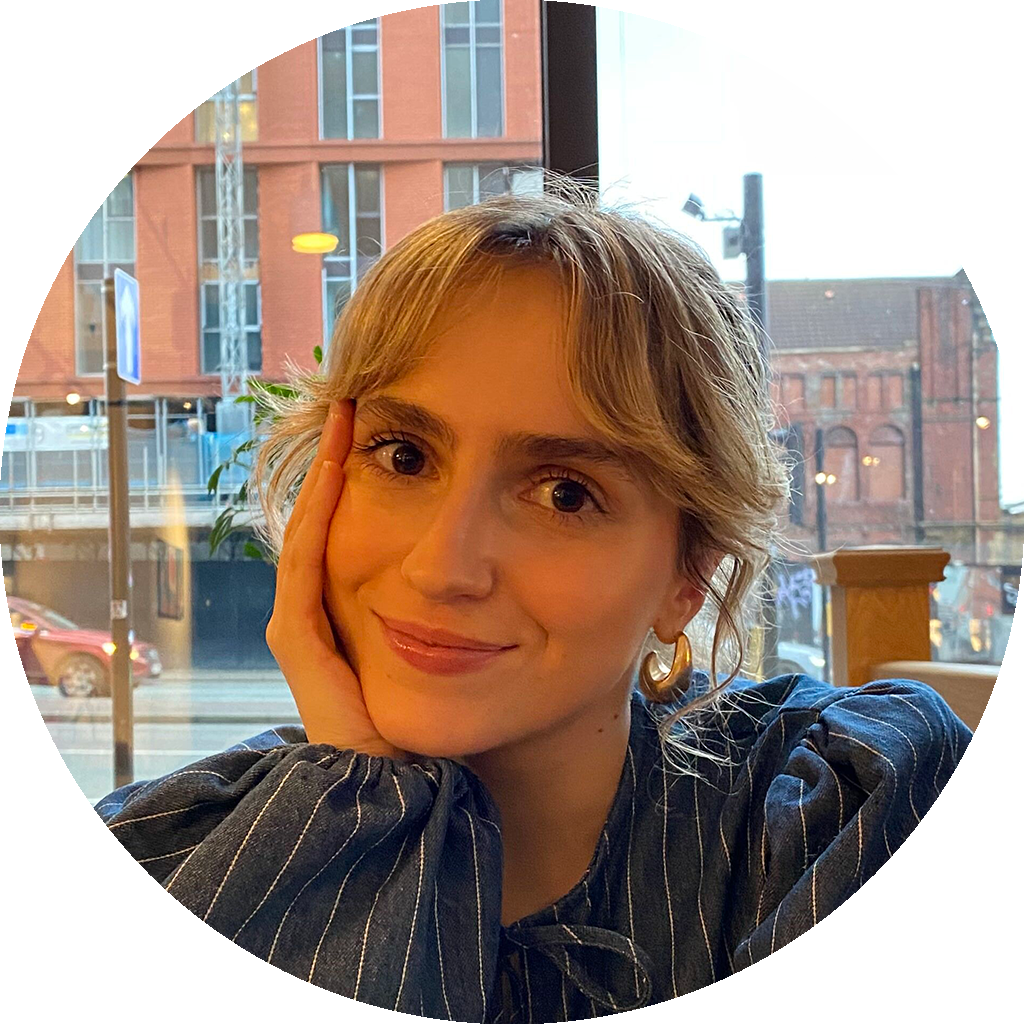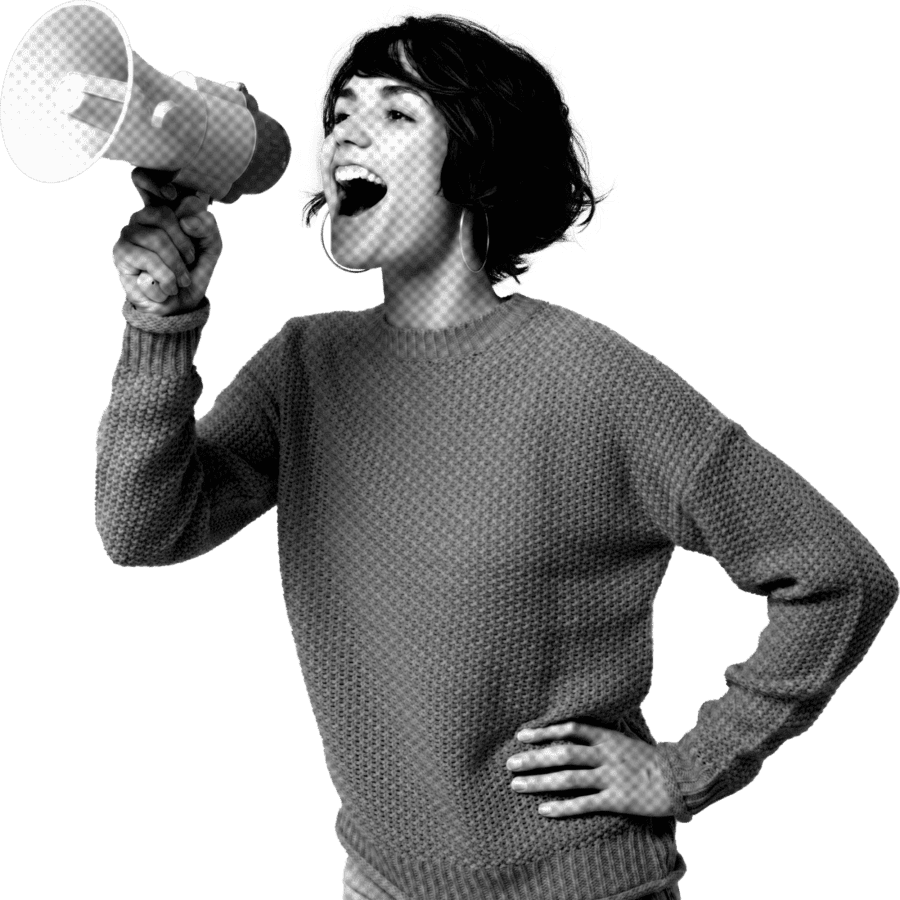Diversity and inclusivity are no longer just buzzwords. They are powerful movements shaping the way in which brands engage with their audience. Inclusive marketing acknowledges the richness of human diversity; welcoming customers to experience brands with a new level of authenticity. Whether you are someone who works in marketing, looking to broaden your perspectives, or a consumer wanting to understand the importance of inclusive marketing, you are in the right place.
This article will explain ‘What is Inclusive Marketing?’ and ‘Why is Inclusion Good for Business?’ as well as the following topics:
What is Inclusive Marketing?
Inclusive marketing is marketing that represents all forms of diversity. This includes age, ethnicity, gender and gender identity, sexual orientation, religious/spiritual beliefs, disability and socioeconomic status. It includes a company’s brand and internal structure, as well as its external advertising campaigns.
Why is Inclusion Good for Business?
Inclusive marketing is good for businesses because it achieves successful results inside and out.
An inclusive company creates a thriving internal environment which attracts and retains top-level employees. Plus, authentically inclusive marketing campaigns enable customers to connect, relate, and celebrate a brand that represents their authentic selves. It’s a win for everyone.
Why is inclusivity important to consumers?
Inclusivity is important to customers as it enables people to choose brands that align with their core values. It makes customers feel seen, heard and valued. When a customer feels resonance with a brand, they are more likely to share the brand or its products with other people in their community – as shown in inclusive marketing statistics below.
This can give consumers a sense of pride and belonging, as well as enable them to experience products/brands that had previously been inaccessible.
For example, Etsy’s 2020 “Gift it Like You Mean It” campaign showed a girl named Shiori, who usually cannot find her name represented in stores, receiving the gift of a personalised necklace with her name on it. This campaign highlights the importance of representation and personalisation in marketing, showing a deep understanding of diverse customer experiences.
By offering a personalised product for a less common name, it creates an emotional connection, making customers with unique names feel seen and valued. This approach not only fosters inclusivity but also enhances customer loyalty by catering to individual identities.
The Benefits of Inclusive Marketing for Companies (and How to Implement it)
In the realm of business, the benefits of inclusive marketing are multifaceted, significantly enhancing brand perception and customer engagement. By mirroring the diverse tapestry of society, businesses not only broaden their market reach but also forge deeper, more authentic connections with their audience.
To implement this effectively, companies should start by diversifying their internal teams, ensuring a wide range of perspectives is represented. This is complemented by training in cultural competency and regular engagement with diverse focus groups to validate marketing strategies. Such measures ensure that inclusivity is not just a superficial layer in advertising but a deeply ingrained aspect of a brand’s identity, resonating strongly with a global, diverse customer base.
Ensuring Your Business is Authentically Inclusive
Authentic inclusivity starts from the inside out. It is not something that your company should simply portray, it is something that should be embedded within its core values. It can help to have transparent team documents that outline diversity and inclusion policies, as well as zero-tolerance against discrimination.
You may want to invite employees to take part in inclusivity surveys, to keep information and policies up to date. You can also consider Inclusive Benefits and Work/Life Balance options for your team; again this can make employees feel respected and valued. It may also be worth offering mentor programs for under-represented employees who would benefit from training to upskill and progress with career advancement.
The most important factor is being transparent and taking accountability for championing best inclusivity practices in the workplace. Once you have ensured that your business is authentically inclusive internally, you may want to branch out and support other companies with inclusive partnerships, sponsorship or volunteer opportunities.
Inclusive marketing statistics 2024
That statistics back up the positive impacts of businesses adopting inclusive marketing
- 36% of people have boycotted a brand because of issues with diversity and representation.
- 50% of people are more likely to recommend a product or service if their advertisements are diverse and representative.
- 57% of consumers are more loyal to brands that commit to addressing social inequities in their actions.
- 70% of Gen Z consumers are more trusting of brands that represent diversity in ads.
- 69% of Black consumers are more likely to proactively seek out a brand with advertising that positively reflects their race/ethnicity.
- 71% of LGBTQ consumers are more likely to interact with an online ad that authentically represents their sexual orientation.
- Just 15% of marketers worldwide recalled people with disabilities being portrayed positively in their recent campaigns, putting it at the bottom of the list.
- 83% of marketers say their company is doing more to provide accessibility in digital marketing than it did in the past.
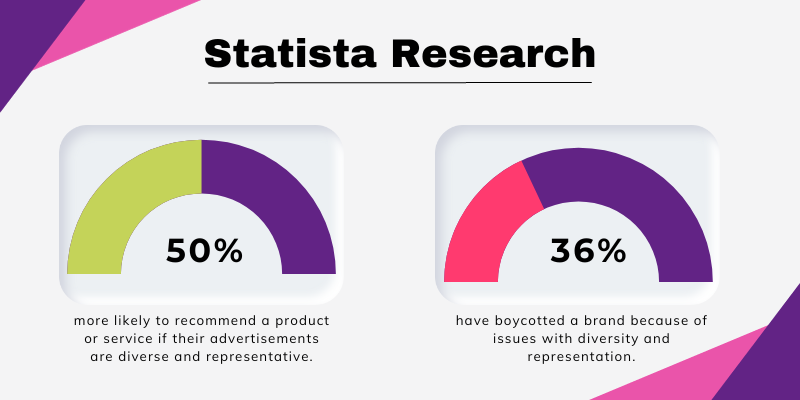
These studies clearly outline the power of diversity and inclusivity when it comes to marketing and how this can affect levels of consumer trust, customer engagement and the likelihood of someone purchasing a product. The statistics also show that people may boycott previously loved brands if companies do not make fundamental changes to their diversity and inclusivity practices.
Top Inclusive Marketing Campaign Examples
Coca-Cola
One of the most memorable inclusive marketing campaigns is Coca-Cola’s ‘Hilltop – I’d Like to Buy the World a Coke’ advertisement. This was released in 1971 and shows people of various ethnicities standing together on a hilltop in Italy and singing that they ‘would like to teach the world to sing.’ At the end of the campaign, Coca-Cola donated $80,000 of royalties from the song to UNICEF and received over 100,000 letters from people celebrating the advertisement. Radio stations were also inundated with requests to play the song.
This example shows the power of inclusive marketing, especially when companies begin to make fundamental changes that might surprise the world.
Target
A more modern-day example is an American retail corporation called ‘Target.’
In their ‘Stay open’ campaign we can witness racial diversity, disability representation, people from the LGBTQ+ community and more. Target has also released adaptive clothing, which shows that inclusivity is a culture within their brand – not just a marketing tool.
Peloton
In December 2021, Peloton released an article sharing that they would be introducing an Adaptive Training Consultant. The consultant is an amputee athlete and the company plans to work with them to make their content more accessible to everyone, including those from the Disabled community.
This is an example of inclusive marketing from the inside out; having a diverse range of people on their team creates a deeper understanding of barriers faced and an improved customer experience.
Dove
Dove has multiple examples of inclusive marketing including their ‘MyBeautyMySay’ and ‘Real Beauty’ campaigns. They have made fundamental shifts to the way in which beauty is portrayed in mainstream media; their mission being ‘to make a positive experience of beauty accessible to all women.’
Kohl Kreatives
A business which has taken inclusivity and diversity to another level is Kohl Kreatives. This beauty brand has multiple ways in which it promotes diversity and inclusivity, starting at its core. Firstly, they create bespoke make-up brushes for those with visual impairments and motor disabilities, making products accessible.
They also create products for individuals transitioning from one gender to another, as well as those undergoing chemotherapy and individuals with severe scarring or burns. Plus, they offer a variety of workshops and online tutorials for people experiencing any of the above. Finally, they ensure that they are having a positive impact on the planet by asking consumers to send in their old plastics, and then use these to make packaging for their brand.
Currys
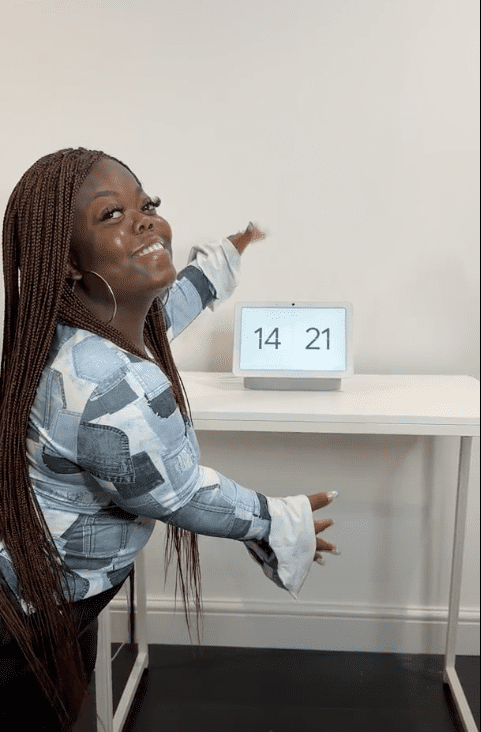
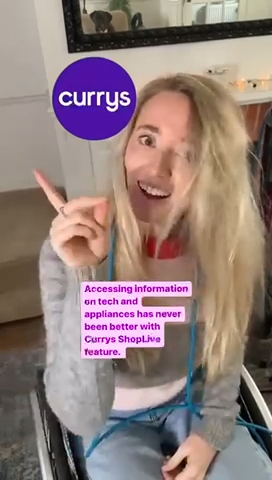
One more example is our very own Purple Goat ‘Currys Tech Hacks & No Worries’ campaign. This was a month-long campaign in which five influencers within the Disability community shared their personal experiences with tech products, sharing their own ‘Tech Hacks’ as well as their experience with the ‘Quiet Hour’ and ‘Shop Live’ services that the brand offers to increase accessibility.
This campaign was a huge success and showed that information shared with authenticity and ‘real life’ examples resonated well within the community as well as outside of it.
Getting Inclusive Marketing Right
At a time when consumers demand authenticity, connection and representation, inclusive marketing is hard to ignore. The power of inclusive marketing is not just a trend – it’s a fundamental shift in the way businesses operate; from the inside out. It celebrates the richness of human diversity and connects businesses and consumers on a deeper level than ever before.
In this article, we have defined the meaning of inclusive marketing and built a greater understanding of why it’s good for business. We’ve seen how inclusivity can make customers feel seen, heard and valued, and that consumers are much more likely to trust, engage and purchase from authentically inclusive brands. It is clear that inclusivity starts from the inside out and that embedding inclusivity within a company’s core values is where it all begins.
Are you ready to make your business more inclusive? Why not get in touch with the friendly team of inclusivity experts at Purple Goat! Or book a Diversity, Equity & Inclusion Training Workshop for your team.


